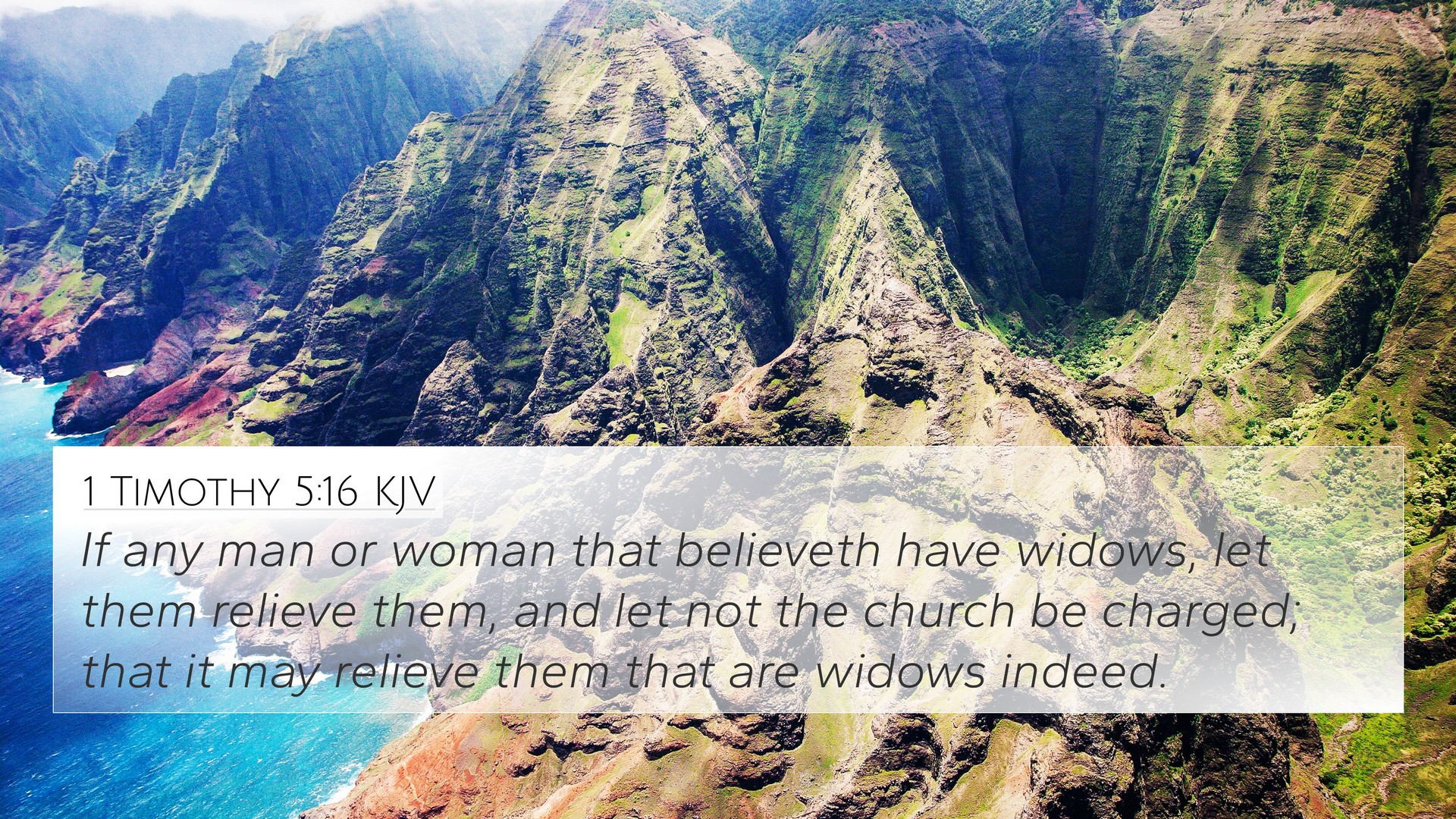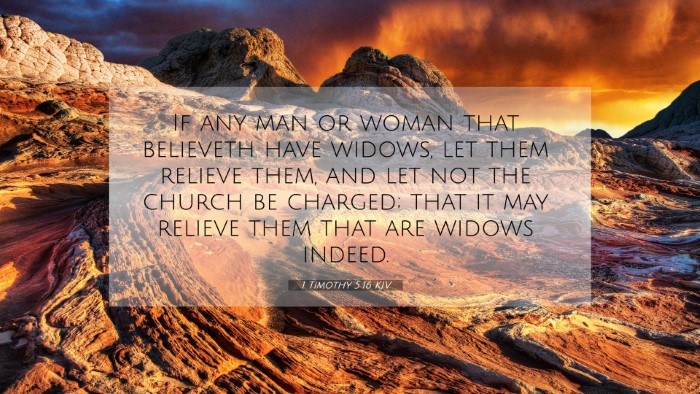Understanding 1 Timothy 5:16
1 Timothy 5:16 states: "If any woman that believeth hath widows, let her relieve them, and let not the church be charged; that it may relieve them that are widows indeed."
This verse emphasizes the duty of individual believers, particularly women, to care for their own families, especially widows, thereby relieving the church from the burden of supporting them. The Apostle Paul instructs Timothy on practical matters concerning church governance and welfare.
Summary of Insights from Commentaries
-
Matthew Henry: Henry emphasizes the necessity of familial responsibility. He suggests that the church is not to support every widow indiscriminately but should focus on those truly in need, highlighting personal duty and charity within the family first.
-
Albert Barnes: Barnes points out that this instruction underscores how important it is for the church to allocate its resources wisely. He notes the distinction between widows who have family support and those who do not, advocating for prioritization in aid.
-
Adam Clarke: Clarke interprets this verse as an encouragement for believers to take personal initiative in their responsibilities towards their relatives. He further elaborates on the importance of community welfare that arises from individual acts of love and care.
Bible Verse Cross-References
The following Bible verses relate closely to 1 Timothy 5:16, providing broader insights into the themes of family duty, church responsibilities, and the care for those in need:
- 1 Timothy 5:3: "Honor widows that are widows indeed," establishing the criteria for who should be supported by the church.
- 1 Timothy 5:4: "But if any widow have children or nephews, let them learn first to show piety at home," reinforcing the family responsibility theme.
- Galatians 6:10: "As we have therefore opportunity, let us do good unto all men, especially unto them who are of the household of faith," highlighting the priority of caring for fellow believers.
- James 1:27: "Pure religion and undefiled before God and the Father is this, To visit the fatherless and widows in their affliction," emphasizing care for the vulnerable.
- Acts 6:1: "And in those days, when the number of the disciples was multiplied, there arose a murmuring of the Grecians against the Hebrews," illustrating early church welfare needs.
- Romans 12:13: "Distributing to the necessity of saints; given to hospitality," further stressing the sharing of resources within the community.
- 1 Peter 4:10: "As every man hath received the gift, even so minister the same one to another, as good stewards of the manifold grace of God," encouraging the stewardship of resources.
Thematic Connections in the Bible
The themes present in 1 Timothy 5:16 reflect a broader biblical harmony regarding care for others and the responsibilities of believers:
-
Family Support: The recurring message that the family unit plays a crucial role in providing for its members.
-
Community Welfare: The church's role in supporting individuals who have no family to rely on, as seen throughout the New Testament.
-
Charity: The emphasis on loving one’s neighbor as an outworking of faith, echoed in both the Old and New Testaments.
Practical Applications
This verse encourages believers today to take personal responsibility for their families while understanding the church’s role in humanitarian efforts:
- Believers are encouraged to actively support their families and ensure that familial ties remain strong, particularly in caring for the elderly.
- Churches can develop programs that address the specific needs of widows and orphans, creating accountability within their communities.
- Individual acts of kindness contribute to the overall health of the church and its mission, demonstrating faith through actions.
Conclusion
1 Timothy 5:16 teaches invaluable lessons about duty, charity, and the responsible management of resources. The intertwining of personal and communal responsibilities underscores a pivotal aspect of Christian living, inviting continuous reflection and action among believers.




